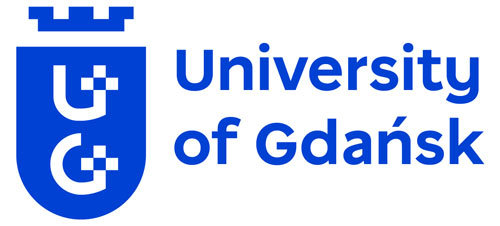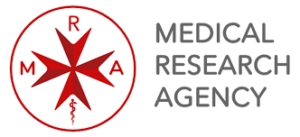Lung cancer is the most common cause of death of cancer patients of both genders, while non-small cell lung cancer (NSCLC) accounts for 85% of its cases. NSCLC is a serious problem for the health care system, as the high risk group accounts for 3 million individuals, for whom optimal screening diagnostics is still missing. Currently used for this purpose low-dose computer tomography (CT) is characterized by a high false positive rate and low efficiency in diagnostic of small (<1cm) pulmonary nodules and limited availability.
Therefore, the goal of the DiaNA project is to provide two new diagnostic methods for NSCLC that will enable efficient populational screening of NSCLC. The methods which have been developing by ICCVS team use only a blood sample and simplify the data analysis using machine learning techniques to enable result interpretation without involving specialized medical personnel.
DiaNA’s objectives and related hypotheses are based on preliminary results obtained by the team of the International Center for Cancer Vaccine Science (ICCVS) led by Prof. Natalia Marek- Trzonkowska ( DiaNA project leader) during realization of the previous R&D studies. The ICCVS team has developed two methods for identification of the patients with early-stage NSCLC based on blood tests. Preliminary data indicate high specificity of the identified markers and the diagnostic algorithm. The DiaNA project has been designed to validate the discovered markers in a study involving more than 2 000 cancer patients and high risk healthy individuals.
“ The diagnostic methods that we have elaborated and we will develop in the DiaNA project, are the result of close collaboration of our researchers working in the field of cancer immunology, flow cytometry, mass spectrometry and bioinformatics. At this point, I would like to thank very much the team members who contributed to the results that made the foundation for the DiaNA project, as well as supported its construction from the administrative side: Izabela Raszczyk (MBA, Head of Administration in ICCVS) and Dominka Butkiewicz (project manager), dr Sachin Kote (leader of Clinical Peptidomics group), dr Artur Piróg (Clinical Peptidomics group), PhD student Ines Papak (Cancer Immunology group), dr Jakub Faktor (Clinical Peptidomics group), dr Anna Biernacka (Cancer Immunology group), dr hab. Monikaben Padariya (Cancer Immunology group), dr Zuzana Urban-Wójciuk (Cancer Immunology group), PhD student Martyna Muszczek (Cancer Immunology group and Clinical Peptidomics group) and dr Katarzyna Dziubek (Clinical Peptidomics group). The project and its preliminary results would also not have been created without the good cooperation with the team of the Department and Clinic of Thoracic Surgery of the Medical University of Gdansk, led by Prof. Witold Rzyman, MD. The multidisciplinary nature of ICCVS has allowed us to approach the diagnostics of lung cancer in a completely new way. We hope that our research will change it, making it simple and accessible.

The first of the two elaborated methods is based on blood sample analysis with flow cytometry. The flow cytometer is currently a standard equipment in laboratories of clinical immunology. Its availability is not a limiting factor for the method implementation. We have established a panel of 16 antibodies to characterize selected populations of natural killer (NK) cells. NK cells are known for their anticancer activity. In parallel, we have developed an analytical algorithm that converts the complex flow cytometry data to a graphical pattern. This way the result interpretation requires only applyinig the template to the graphical pattern and assessing whether the template and graphical pattern overlaps. Therefore, the procedure takes less than one minute and does not require specialized knowledge. At this point, I would like to mention that we have observed that the reference and diagnostic patterns are different for women and men. Therefore, our algorithm takes into account also a gender of the examined person.
The studied material for the second elaborated method is also blood. However, this time the blood is analyzed with mass spectrometry. In our previous studies, we identified approximately 7 000 peptides presented by MHC class I molecules of NSCLC, but not by the healthy lung cells of the same donors (these peptides are called neoantigens). Then we observed that 4 of them were also present in the blood of NSCLC patients. Interestingly, we detected them in all tested patient blood samples, but never in samples derived from healthy individuals. The DiaNA project will enable us to validate the diagnostic value of the discovered neoantigens and simplification of the method to make it quick and widely available.” – explains prof. Natalia Marek-Trzonkowska.
The methods planned for development in the project have a high potential for implementation and commercialization. In both approaches, blood is the tested material, which will ensure widespread availability of the methods.
“The DiaNA project is another project with commercialization potential, which increases the portfolio of application projects underway at ICCVS and contributes to our strategic plans.” – adds, Izabela Raszczyk, MBA, Head of Administration in ICCVS.
Each of the methods is a viable opportunity to develop simple and rapid screening diagnostic test for NSCLC. In addition, they have great potential for implementation due to the type of the tested material and rapid interpretation of the results. Therefore they are tools for improvement of the healthcare system, leading to better health of the society.
The implementation of the DiaNA project takes place thanks to the funding from the Medical Research Agency within the framework of the competition for scientific entities to carry out applied research in the biomedical area (2024/ABM/03/KPO) within the National Recovery and Resilience Plan, Component D Efficiency, Accessibility and Quality of the Health System, Investment D3.1.1 Comprehensive development of research in medical and health sciences. In the competition, 224 applications were submitted and 57 projects were recommended for funding, for a total amount of PLN 446 529 261,37 (104 819 075 €).
The project ‘NSCLC Diagnostics – Algorithm’ (DiaNA) led by Prof. Natalia Marek-Trzonkowska, DVM, PhD, is funded by the Medical Research Agency in the amount of PLN 14 896 000,00.

Read more and see the ranking list of evaluated projects [PL]:



